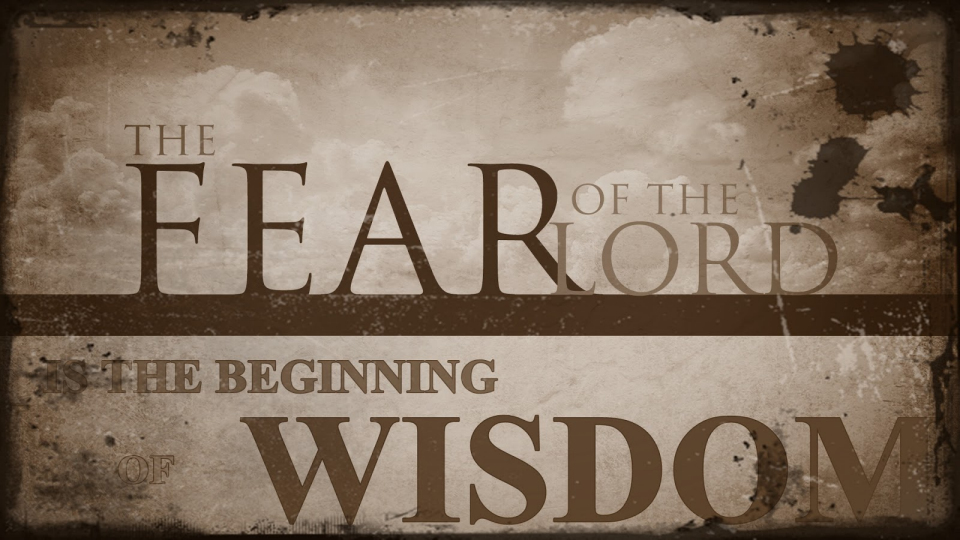“I perceived that whatever God does endures forever; nothing can be added to it, nor anything taken from it. God has done it, so that people fear before Him.”
(Ecclesiastes 3:14)
Our finite minds cannot come close to comprehending or even imagining the workings of an omniscient, omnipotent God. No matter how grand our plans and purposes are, they are limited by time and space. But an infinite God wills and accomplishes everything in alignment with His perfect eternal plan and ultimate purpose. God does all that He does with eternity in mind, so that its effects exist forever to the glory of His name and the exaltation of His Son Jesus Christ.
What kind of response should a Christian have to this truth? In Ecclesiastes 3:14, the wisdom of Solomon responds to such with a reverential fear: “I perceived that whatever God does endures forever; nothing can be added to it, nor anything taken from it. God has done it, so that people fear before Him.” Samuel Hopkins notes, “This truth, considered in its extent and consequences, is the only proper and sufficient foundation of the true devotions of any Christian man or woman.”
But what is a proper fear of God for a believer? We are certainly not to fear God in the same way a servant fears a malicious master, or one would fear an authority whose intentions are to harm.
Rather, our fear of God is akin to the kind of appropriate fear a child has for his father. A good father disciplines the child that he loves, and so does our heavenly Father. A child who experiences loving discipline from a father has a great deal of love and respect and awe for their father, and so should we for our heavenly Father. Further, just like a good child seeks to obey his or her father for fear of displeasing the one who is their primary source of protection and love, so do we our heavenly Father.
Proverbs 9:10 tells us, “the fear of the Lord is the beginning of wisdom.” Why? Because the more we know about God, the more we understand that, as Hebrews 10:31 states, “It is a frightening thing to fall into the hands of the living God.”
Wisdom says that unless I am rescued by God’s sovereign grace and trust wholly in Christ, the only Savior of sinners, I am without hope and will experience eternal punishment in hell. Rather, I put my faith in Him alone, in His infinite power and sovereign goodness for my pardon, righteousness, holiness, strength, and redemption. This is the beginning of wisdom.
Wisdom also knows that a right relationship with my heavenly Father includes a reverential fear and an awe-filled adoration for who He is and how I am to relate to Him. A right understanding of how to properly fear God will result in my obedience and desire to please Him moment by moment and day by day.
Finally, Wisdom realizes that a rightly oriented fear of God is a place of promised blessing:
Blessed are all who fear the Lord, who walk in obedience to Him.
You will eat the fruit of your labor; blessings and prosperity will be yours.
(Psalm 128:1-2)
- Lord, when a servant offends his master, he fears the inevitable punishment that lies outside of love. This is not the same fear as Your people should have for You, however. Help me fear You rightly, that I might love You as much as I fear You.
- Lord, I want to clearly understand the difference between the fear of the son for his father whom he loves and the fear of the servant who loves only himself.
- I know that a servile fear causes people to be afraid of You, Lord. They may be convinced of the truth of Ecclesiastes 3, and in some measure believe it to be true. But they do not trust Your greatness. They don’t understand that they are wholly dependent on You for their every breath as well as their final end – in order to escape hell and obtain heaven. They think they hold their life in their own hands and therefore lack proper fear of Your majesty and sovereignty… at least not until they face death, at which time they then may suddenly fear You.
- Lord, help me understand more fully how godly fear includes love for You. Help me see clearly Your infinite greatness as well as the beauty of Your holiness and Your glorious character which is unchangeably wise, good, upright, just, true, and faithful… the Only One who possesses all power to do whatsoever You will.
Further References for Eccl. 3:14
Eccl. 7:18; Ps. 33:11; James 1:17; Ps. 64:9, 119:90; Isa 59:19


